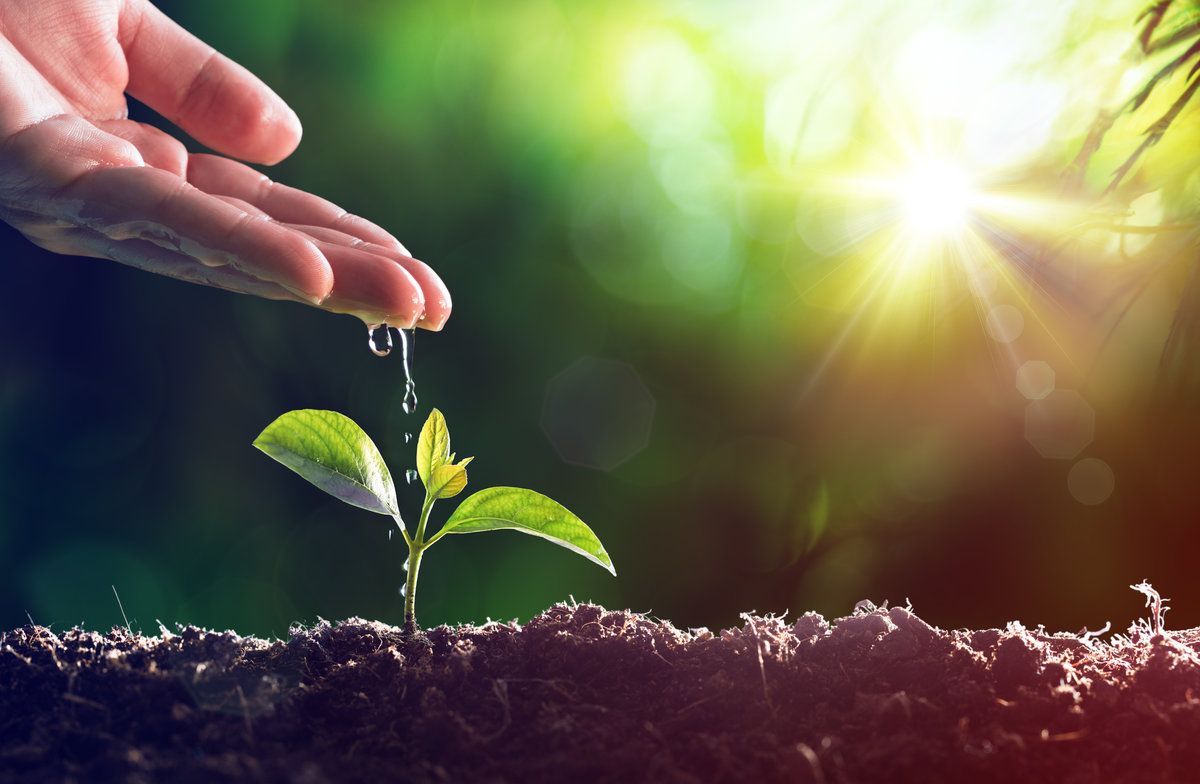
Due to the ever-soaring requirement for sustainability in today’s world, the concept of recycling has increased in complexity over the past few decades. As a result of new and innovative packaging design comes the question of how the waste will be discarded. Packaging labels and recycling symbols are now appearing on lots of everyday items and help us to identify how different types of packaging can be recycled.
Here’s a guide to the different recycling symbols:
Recycle

This is the most common recycling symbol you will see, as this is collected by at least 75% or more local authorities across the UK, a main example of this is plastic bottles.
Recycle | Rinse
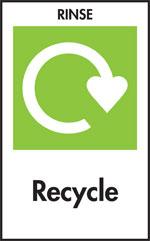
This is mainly for products such as food trays, which require rinsing before recycling, so the food doesn’t contaminate other materials.
Recycle | Rinse | Lid/Cap on
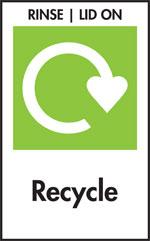
Caps and lids under 40mm in diameter are too small to be captured for recycling. Replace the lid on the bottle as this ensures it is all captured and recycled.
Don’t recycle | Remove Sleeve/Film
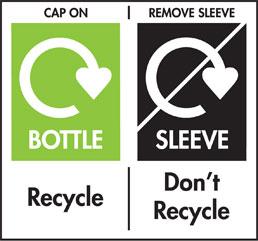
This symbol may appear on packaging where film liners can be removed easily.
The Green Dot

This is the license symbol used on packaging in some European markets which shows that a fee has been paid to fund the recycling of that packaging when it becomes waste.
Mobius loop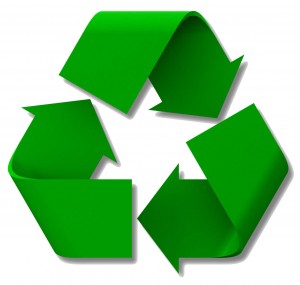
The Mobius loop shows an object has capability of being recycled. This may not be the same for all recycling collection systems. Sometimes it includes a percentage stating the amount of recycled material.
Glass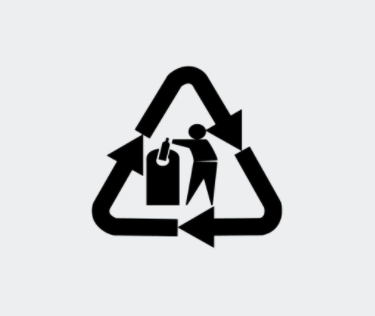
This symbol asks that you recycle the glass container.
Recyclable Aluminium 
This symbol indicates that an item is made from recyclable aluminium.
Recyclable Steel

This symbol means that the product is made of steel. All councils collect steel for recycling!
Tidyman

This symbol isn’t necessarily relating to being able to recycle the product, but is from Keep Britain Tidy requesting not to litter.
Waste electricals
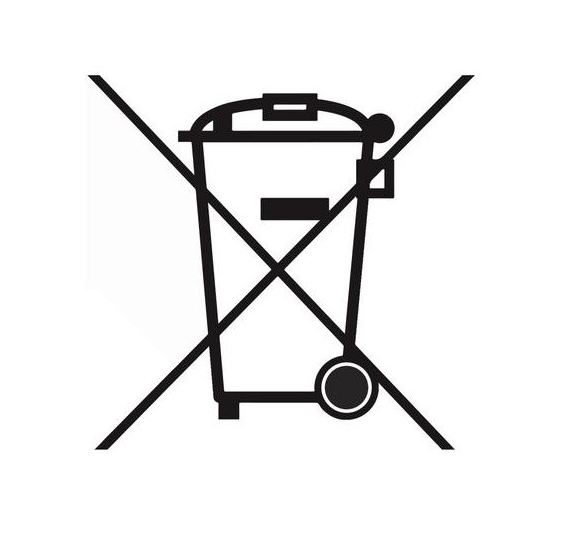
This symbol explains that you should not place the electrical item in the general waste. Electrical items can be recycled through a number of channels.
Compostable
Products certified to be industrially compostable might have this ‘seedling’ logo. Never put compostable plastics into your recycling or food waste recycling bin.
Paper, card and wood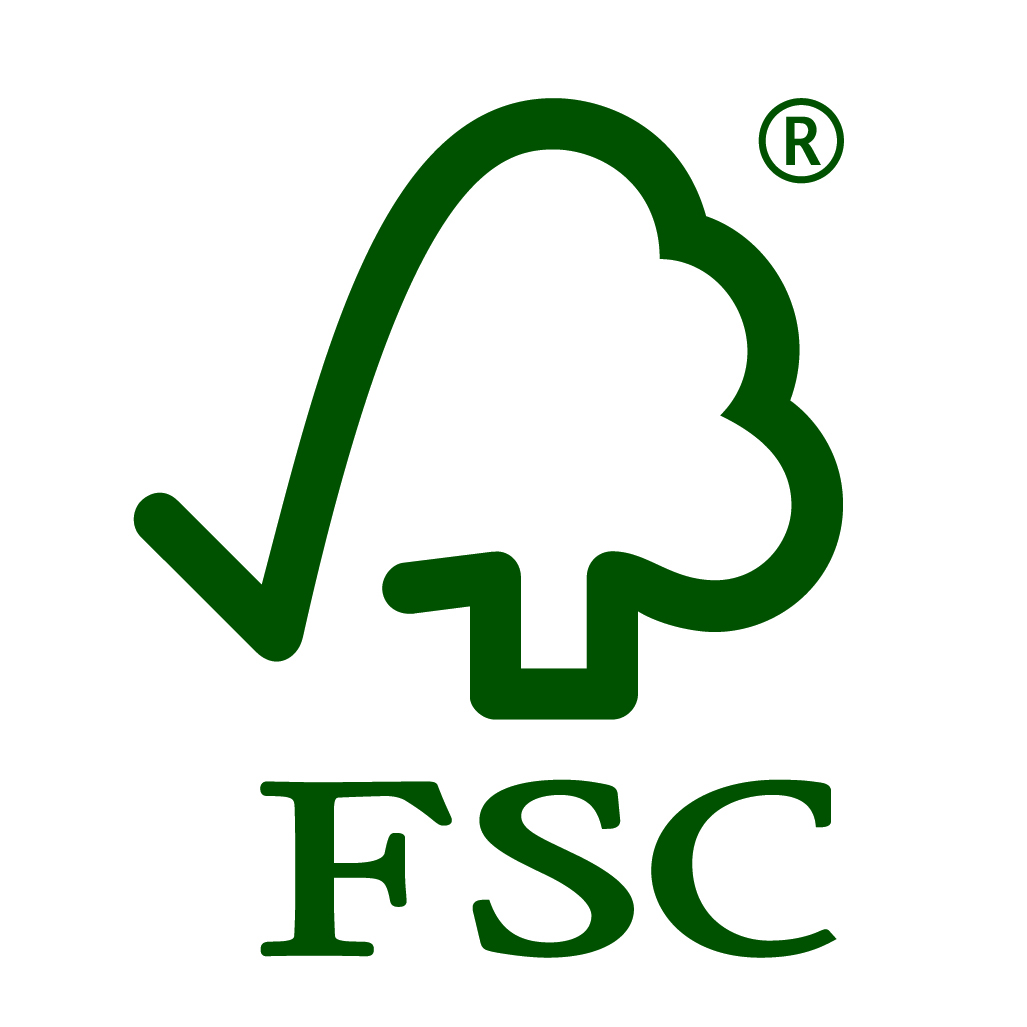
The Forest Stewardship Council (FSC) logo means that in item has been made using wood from well managed forests. They have further symbols to break down the different types of paper, card and wood, so it's clear what can be recycled.
Plastic resin code symbols

Depending on the resin used can determine whether the packaging can be recycled. There are a range of symbols numbered from 1 to 7 which defines the resin used:
1. Polyethylene Terephthalate (PET) - can be recycled
2. High-Density Polyethylene (HDPE) – can be recycled
3. Polyvinyl Chloride (PVC) – most can’t be recycled
4. Low-Density Polyethylene (LDPE) - can sometimes be recycled
5. Polypropylene (PP) - can sometimes be recycled
6. Polystyrene (PS) – can sometimes be recycled
7. Other & Miscellaneous – other plastic products can sometimes be recycled
Benefits of recycling
For businesses, one of the main benefits of recycling is that it lowers costs. Not only from the perspective of using recycled materials, which can be much less than creating a brand-new material, but from an energy saving perspective. Using recycled materials can be much more energy-efficient than creating a new material. For example, making paper from pulped recycled paper uses 40% less energy than making it from virgin wood fibres. When on a large scale, this can provide significant savings. Material that would otherwise be classed as waste and simply left to sit in the ground can now be reused, reducing the amount of waste at landfill sites, and decreasing the demand for new materials. Therefore, ultimately helping to reduce pollution. It’s beneficial for businesses to recycle as becoming environmentally responsible is so prominent in today’s world. People are becoming increasingly aware of the negative impacts of irresponsible waste disposal, so those who don’t take this seriously can find that their perceived irresponsibility can be a big disadvantage to them. From a business perspective, being green makes a lot of sense.


